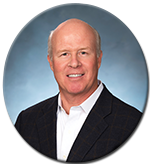Bob’s Ramble: Work Life VS Home Life
“Don’t bring work home with you.”
“Leave your personal baggage at the door.”
These adages have been experiencing a revival in workplaces, and I know this advice is well-meaning. The urge to separate work life and home life is understandable—especially as the pandemic and subsequent shift to remote work have entangled the two in new ways. Yet this has never sounded quite right to me.
In some ways, asking anyone to draw strict boundaries around professional and personal time is not just short-sighted, but it’s also unfair. The only resource we know we can’t make more of is time. Unlike material wealth, time is non-fungible—we’ll never be able to recover the time we’ve lost. Our time is sacred, and while most of us can’t control exactly how we spend each moment, we should ensure we’re getting the most out of it whenever we can.
Establishing firm borders between the different parts of one’s life is meant to solve this. People argue that to allow facets of your work-self to permeate your family-self is to pollute precious family time. Similarly, it’s said that taking family concerns with you to work will hurt your performance.
Essentially, we are told to compartmentalize. Be your best work-self at work, but don’t let that work-self join family dinner. Be your family-self at home, but don’t be preoccupied with thoughts of your home life while on a Zoom call.
But the truth is, there aren’t two different versions of you—there’s just one. You are yourself whether you’re in the office, at your kid’s soccer game, or at the movies. You don’t manifest selves by the situation. You’re always you.
So, when one part of you suffers, the rest of you also suffers. When you’re frustrated at work, it’s hard to enjoy your hobby, and you’re likely not going to be much fun at home. Studies have shown that when we neglect our avocations, our work performance can also suffer. Think of it like sleep—when you don’t sleep well, everything is off. When you don’t care for yourself in all your iterations, your overall performance and well-being can suffer.
I like to think of life, not self, in three parts: vocation (work), family, and avocation (hobbies). When all three are in proper balance, we’re at our best—and it shows to our colleagues, our families, and ourselves. When any one of these is in decline, the others are soon to follow. Good self-care is critical to good family care and work care.
In summation, let me offer another cliché: Be yourself—your whole self—wherever you are. Honor your complexities and contradictions. That’s what keeps us all curious, connected, and a lot more fun to work with, live with and be with.
